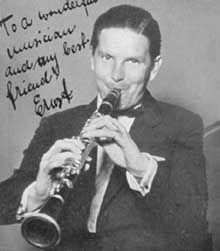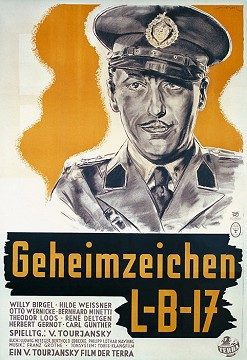Related Research Articles

Kurt Georg Kiesinger was a German politician who served as the chancellor of West Germany from 1 December 1966 to 21 October 1969. Before he became Chancellor he served as Minister President of Baden-Württemberg from 1958 to 1966 and as President of the Federal Council from 1962 to 1963. He was Chairman of the Christian Democratic Union from 1967 to 1971.
The 26th Annual Grammy Awards were held on February 28, 1984, at Shrine Auditorium, Los Angeles, and were broadcast live on American television. They recognized accomplishments by musicians from the year 1983. Michael Jackson, who had been recovering from scalp burns sustained due to an accident that occurred during the filming of a Pepsi commercial, won a record eight awards during the show. It is notable for garnering the largest Grammy Award television audience ever with 51.67 million viewers.

ProSieben is a German free-to-air television network owned by ProSiebenSat.1 Media.

The Hochschule für Musik Hanns Eisler Berlin in Berlin, Germany, is one of the leading universities of music in Europe. It was established in East Berlin in 1950 as the Deutsche Hochschule für Musik because the older Hochschule für Musik Berlin was in West Berlin. After the death of one of its first professors, composer Hanns Eisler, the school was renamed in his honor in 1964. After a renovation in 2005, the university is located in both Berlin's famed Gendarmenmarkt and the Neuer Marstall.

Akademie für Alte Musik Berlin is a German chamber orchestra founded in East Berlin in 1982. Each year Akamus gives approximately 100 concerts, ranging from small chamber works to large-scale symphonic pieces in Europe's musical centers as well as on tours in Asia, North America and South America.
Mady Rahl was a German stage and film actress. Born Edith Gertrud Meta Raschke in Neukölln, now part of Berlin, Rahl trained as an actress and dancer. In 1935 she made her stage debut in Leipzig under the direction of Douglas Sirk and started her film career in 1936 with the movie The Mysterious Mister X. With her role in the circus drama Truxa (1937), Rahl became known to a wider audience. After the war, she sang with her friend Elfreide Datzig for the USO. She ultimately appeared in approximately 90 movies, several of them for UFA. In later years, she appeared frequently on television, while also pursuing her career in the theatre. She was also the German voice of many cartoon characters and of Lucille Ball.

Football club de Nancy was a French association football team playing in the city of Nancy, Meurthe-et-Moselle. The team was founded in 1901 and dissolved in 1968.

God Created the Integers: The Mathematical Breakthroughs That Changed History is a 2005 anthology, edited by Stephen Hawking, of "excerpts from thirty-one of the most important works in the history of mathematics."

Peter Igelhoff was an Austrian pianist, light music and film composer, arranger and entertainer; he took his mother's maiden name as soon as he resolved on a career in light entertainment.
MPS Records was a German jazz record company and label founded in 1968 by Hans Georg Brunner-Schwer. MPS stands for "Musik Produktion Schwarzwald".
The German Dance and Entertainment Orchestra was a musical ensemble formed in 1942 by musicians Franz Grothe and Georg Haentzschel on the initiative of Nazi propaganda minister Joseph Goebbels. It was an attempt to create an acceptable alternative to jazz, which was a popular genre among Germans but was considered a form of degenerate music by the Nazis due to its racial associations. The self-styled "rhythmic dance music" produced by the German Dance and Entertainment Orchestra was intended especially to satisfy the musical desires of military personnel, thus preventing them from listening to British radio broadcasts which also contained anti-Nazi propaganda material. Walter Dobschinski worked with the ensemble.
Willy Berking was a German orchestra conductor, trombonist, and composer.

Leon Golzmann or as he was more commonly known, Dajos Béla, was a Russian jazz violinist and bandleader.
The ALEA Ensemble is a chamber music ensemble founded in 1988 in Graz for contemporary music, playing in variable formation including the ALEA Quartet.
Fritz "Freddie" Brocksieper was a German jazz-musician, drummer, and bandleader.
Kurt Hohenberger was a German jazz trumpeter.
Eduard "Eddie" Brunner was a Swiss jazz reedist and bandleader.

Ernst Höllerhagen was a German jazz reedist.

Secret Code LB 17 is a 1938 German thriller film directed by Victor Tourjansky and starring Willy Birgel, Hilde Weissner and Bernhard Minetti. It was made at the Babelsberg Studios outside Berlin. The film's sets were designed by the art directors Karl Böhm and Erich Czerwonski.
Willi Gundlach is a German choral conductor and academic. He taught at the music department of the Technical University of Dortmund. He researched and edited works by Fanny Hensel-Mendelssohn. He founded and conducted a chamber choir at the university and recorded with them, including operas for the Kurt Weill Foundation. After his retirement from teaching, he cofounded and organised a concert series at St. Peter, Syburg, including organ concerts and vocal concerts with notable performers.
References
- Rainer E. Lotz, "Goldene Sieben". The New Grove Dictionary of Jazz , 1994, pp. 435–436.